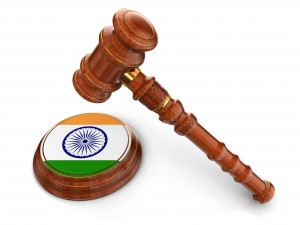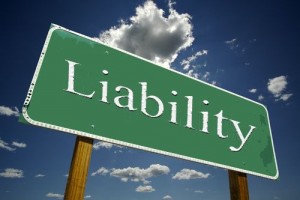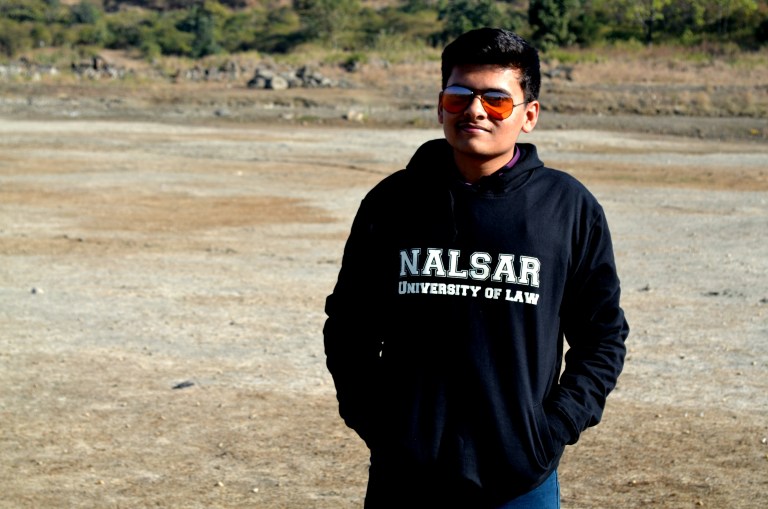In this blog post, Abhiraj Thakur, a student at NALSAR University of Law, Hyderabad, writes about some of the major issues that surround the laws governing civil nuclear liability in India.
Over the course of history, Man has depended on various sources for energy. In ancient times, he used fire woods from forests to warm and protect himself and with the discovery of fossil fuels came a revolution in energy generation. Today, most of our power needs are fulfilled by fossil fuels derived from mines and ocean beds across the world. The problem with them being of non-renewable nature, the world is constantly looking for new energy sources.
 Nuclear power is one such alternative to conventional sources of energy. Working on the mechanism of nuclear fusion nuclear reactors apart of being used for development of weapons is being widely used all over the world to generate power.
Nuclear power is one such alternative to conventional sources of energy. Working on the mechanism of nuclear fusion nuclear reactors apart of being used for development of weapons is being widely used all over the world to generate power.
Nuclear fusion can be simply described as when two atoms are combined or fused together, it subsequently releases energy, this energy can be harnessed and utilised for a wide variety of purposes.
With minimal greenhouse emissions and greater power generation capacity than the fossil fuels, nuclear energy is gaining a foothold in many countries of the world. However, the issue of power generation through nuclear technology has for a long time been marred with controversies, the biggest of them being the deadly nature of the radiations that can emerge in case of accidents or other mishaps. The legal issues that surround this fact are of liability in case of such accidents. Today, many countries along with India have various laws to determine civil nuclear liability. There have been such instances in the past and so the issue holds much importance.
Legal Framework in India
 The issue of civil liability in case of nuclear disasters hovered for a long time in policy circles of India but for the first time actively came up in 2006 when India put forward its plan to have civil nuclear agreement with The United States. The agreement was finally achieved in 2008 popularly referred to as the Indo-US Civil Nuclear Agreement. One of the terms of the agreement mandated for civil liability law with regard to nuclear incidents in India. As a result, about 2 years later the infamous The Civil Liability for Nuclear Damage Act of 2010 (hereafter referred to as ‘The Act’) was passed by the Parliament. The Act by far is the most comprehensive legislation that inter alia deals with compensation for the victims of such disasters.
The issue of civil liability in case of nuclear disasters hovered for a long time in policy circles of India but for the first time actively came up in 2006 when India put forward its plan to have civil nuclear agreement with The United States. The agreement was finally achieved in 2008 popularly referred to as the Indo-US Civil Nuclear Agreement. One of the terms of the agreement mandated for civil liability law with regard to nuclear incidents in India. As a result, about 2 years later the infamous The Civil Liability for Nuclear Damage Act of 2010 (hereafter referred to as ‘The Act’) was passed by the Parliament. The Act by far is the most comprehensive legislation that inter alia deals with compensation for the victims of such disasters.
Nature of Liability under the Act
The Doctrine of Strict Liability stands at the heart of the Act. Taking cognizance of the earlier incidents of man-made disasters such as the Bhopal gas tragedy, the parliament deemed strict liability to be better for the substantive purpose of the Act i.e. enable victims to get compensation. The Act imposes strict liability upon the operator of the plant[1], only in cases of ‘Act of God’ or force majeure events the government can be obligated to bear the costs.[2]
 Since its very inception, the Act has been subject to much controversy over the problems that arise due to the provisions for liability enumerated under the act. Some of the pertinent issues that seek attention are:
Since its very inception, the Act has been subject to much controversy over the problems that arise due to the provisions for liability enumerated under the act. Some of the pertinent issues that seek attention are:
Monetary Capping on compensation: The act fixes the liability to a certain monetary limit. In the case of operators, the limit is Rupees 15 billion and for the Government the cap is fixed to 300 million dollars of Special Drawing Rights of the IMF[3] which as per the current rates comes out to be roughly 420 million US Dollars. The biggest problem with such capping is the situations when the damage exceeds the limit. The Act does not expressly provide for any provision with respect to damages over the limit which makes the implementation arbitrary in cases of serious nuclear losses.
Limited Private Players: Another issue that surrounds the liability is the operation of such nuclear plants. In India, these plants are state owned and operated through NPCIL[4] and so ultimately the responsibility for such disasters will be borne by common Tax-payers. The operator also being a state entity in India makes the monetary burden of compensation fall on the common man. Opening the area to private players has its own advantages and disadvantages that need to be explored.
Neglect of the Additional Costs: The incidents in the past such as the Fukushima and Chernobyl have shown that apart from granting compensation there are many additional costs which the party at fault needs to bear. These costs include the cost of cleaning up and safe disposal of the nuclear waste. These activities demand a lot of money along with high level of caution and care. The Act does not provide any provision for these additional costs which can prove problematic.
Liability of Suppliers
By the virtue of Section 17 of the Act an operator has the right to recourse against the supplier. Such a right finds its basis in the contract between the operator and his supplier, who is an employee. If the nuclear accident can be attributed to the fault of the supplier due to below standard services and other defects etc. the supplier can be held liable under the contract law. The suppliers claim the act to be unfair to them, few contentions are:
Uncapped Indemnities: These contracts between the operator and supplier are fixed at the value of the contract, or at a certain proportion of the contract value. As per the contract law such contracts are of indemnity and so in the case of any mishap, the supplier would need to indemnify the operator if the accident happened due to his fault. These indemnities are unfixed under the Act and so make the position of the suppliers vulnerable.
No Scope for bargain: As the extent of indemnifying is unfixed for the supplier, the suppliers in the initial years tried to negotiate with the operator on the amount of money and often try to reach an agreement. The government of India considered such activity to be unfair and outside the purview of the Act and so was enacted Civil Liability for Nuclear Damage Rules of 2011. The Suppliers widely protested this step as being repressive.
Liability under Tort Law
 The section which when harmoniously interpreted can allow compensation under the tort law is section 46. It talks about that nothing in the Act or any other law in force in the country can prevent a person from bringing proceedings against the operator which can be brought under any law apart from this act. Prima facie, the section seems to permit claims under tort law. However few issues that need to be dealt to make the law more efficient are:
The section which when harmoniously interpreted can allow compensation under the tort law is section 46. It talks about that nothing in the Act or any other law in force in the country can prevent a person from bringing proceedings against the operator which can be brought under any law apart from this act. Prima facie, the section seems to permit claims under tort law. However few issues that need to be dealt to make the law more efficient are:
Ambiguity of Economic Loss: The question that raises doubts on the very intention of the act is that whether claims in tort law for economic loss can be sustained under this section. The statute is silent on the matter and the question still remains to be solved.
Claim against supplier: Section 46 only talks about claims against operator and so the liability of the suppliers under tort law remains an area of concern. The suppliers seem to be effectively insulated from liability under tort by the section. The contention has been subject to much debate in the parliament. An amendment was tried to bring suppliers as well under the ambit of the section but it failed. The question now comes fundamentally to the intention of the statute, the courts have not dealt with the validity of Section 46 and so any comment on it is futile.
Some Other Issues
Foreign Jurisdiction: India takes supplies from many foreign countries when it comes to nuclear energy. These suppliers are foreign entities to Indian Law, so a burning question that arises is regarding the claims against these foreign suppliers. Can Indian victims move to foreign courts to claim compensation under the Act?[5] The view taken by the Ministry of External affairs seems to be in negative. The issue of jurisdiction arises in such cases. Many people have time and again called for an extra-territorial application of the Act.
Position in International Law: The Convention for Supplementary Compensation for Nuclear Damage called CSCND was adopted by UN that deals with jurisdiction issues in cases of nuclear damage. Article 13 of the convention states that any proceedings concerning claim for compensation from nuclear damage can be instituted only in the courts which have jurisdiction over the area of incident. Thus, it seems that a foreign court would not entertain claims of Indian victims.
Thus, we see though India is at par with other nuclear capable countries when it comes to having a comprehensive law dealing with damages for nuclear disasters but there are many loopholes to be plucked. The law in our country must present a more effective mechanism when it comes to dealing with issues enumerated above. The Act currently in force makes few sections of the society much more vulnerable to compensate than the other, which must not happen. Along with solving the ambiguities present an attempt must be made to have a fine balance of the aspirations of suppliers, the state and the civil society.
[divider]
[1] Section 4 of the Act
[2] Section 5 of the Act
[3] International Monetary Fund
[4] Nuclear Power Corporation of India
[5] http://www.mea.gov.in/press releases.htm?dtl/24766/Frequently_Asked_Questions_and_Answers_on_Civil_Liability_for_Nuclear_Damage_Act_2010_and_related_issues, Last Accessed 24th May 2016
 Serato DJ Crack 2025Serato DJ PRO Crack
Serato DJ Crack 2025Serato DJ PRO Crack










 Allow notifications
Allow notifications


